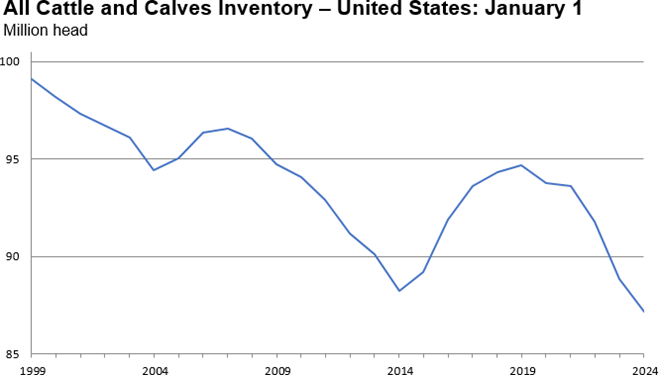by John McCracken
March 13, 2024
Extract::
Read more here: https://investigatemidwest.org/2024/03 ... eef-herd/(Investigate Midwest) The size of the overall U.S. beef cattle herd has continued to decline since 1975, a trend largely attributed to an increase in global beef production and cattle imports. But at the beginning of 2024, the nation’s inventory of beef cattle hit a 61-year low, according to data from the U.S. Department of Agriculture.
In the nation’s top 10 beef-producing states — responsible for nearly 60% of the country’s beef production — half reported the lowest number of cattle since 1995 as of the beginning of this year, according to an Investigate Midwest analysis of the USDA’s data.
Droughts starting in 2020 are a contributing factor in the nation’s historically low beef inventory, according to USDA research. Nebraska and Missouri — two of the top 10 beef-producing states — experienced the largest decline in the quality of June pastureland since 2020 compared to the other top states, according to an Investigate Midwest analysis of USDA data.
Finding land with plentiful grazing for cattle is difficult in drought years. An analysis of USDA pastureland data shows that grazable Nebraska pastureland shrunk by a third since 2019 during the month of June.
…
Current research shows climate change has caused more frequent large rainfall events coupled with months of zero precipitation. This volatility has made relying on typical weather patterns and grazing conditions difficult for the nation’s beef producers.

Source: USDA